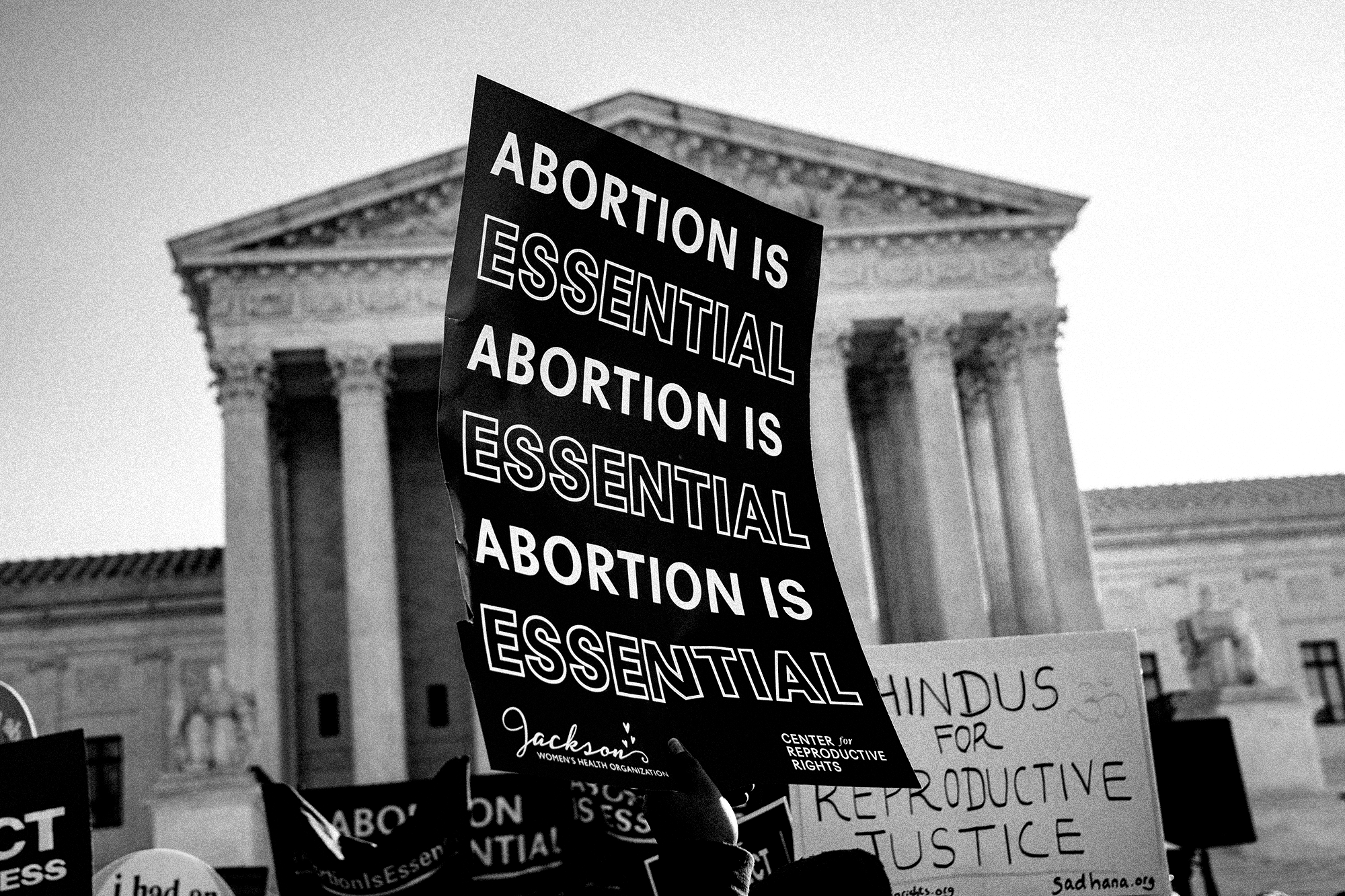The Case for a Unity Ticket in 2024 Continues to Diminish | Vanity Fair

By Abigail Tracy
Amidst concerns about the credibility and proficiency of leading presidential candidates, Joe Biden and Donald Trump, the No Labels group, which promotes bipartisanship and the potential for a third-party candidate, appears to be subtly adopting the current Republican stance on abortion. By indirectly endorsing a 15-week ban, the group has attracted criticism and accusations of being a Republican front seeking to undermine a potential Biden ticket.
Since its establishment, No Labels has expressed its belief that Americans are tired of intense partisan politics and need more choices. In 2010, as referenced by Slate, the group's website argued that issues such as gay marriage and abortion hinder collaboration, and so the group aimed to focus on common goals rather than polarizing left or right perspectives.
However, it seems that No Labels is no longer avoiding these divisive issues. Last year, David Brooks detailed some of these points in a column for The New York Times, including 'no guns for anyone under 21 and universal background checks' and 'moderate abortion policies with abortion legal until roughly 15 weeks.'
In July, No Labels issued a policy booklet providing its approach to tackling the nation's most contested issues. The language is intentionally ambiguous. Initially, they note that most abortions occur before 15 weeks, supporting the 'consensus' position on abortion promoted by many Republicans. Then they suggest that a compromise can only be found when a leader approaches the issue with empathy and respect.
A No Labels spokesperson told Vanity Fair that the group has never formally endorsed a 15-week abortion ban.
Several Republicans, including Glenn Youngkin, Mike Pence, Ronna McDaniel, and Tim Scott have adopted the 15-week limit. Despite this, some anti-abortion campaigners have criticized this argument as ineffective. Olivia Gans Turner, president of the Virginia Society for Human Life, argued in a Politico report that the focus on the 15-week timeframe detracts from the unborn child's capacity to experience pain.
“It’s not at all surprising that No Labels are advocating an anti-abortion stance since it is led by Republicans, who have a vested interest in promoting this viewpoint,” says Alexandra De Luca, VP of strategic communications at American Bridge 21st Century, a Democratic research group. No Labels’ leadership comprises Republicans Larry Hogan and Pat McCory, as well as former Democrat-turned independent Joe Lieberman. The group has supported politicians like Jon Huntsman and Joe Manchin, both of whom have records of anti-abortion legislation and mixed records on abortion, respectively.
The recent Democratic victories in several states, including Ohio, Virginia, Kentucky, and Pennsylvania, demonstrate that abortion access is a critical issue for voters. Reproductive rights supporters argue that the proposed 15-week ban is medically arbitrary and merely a stepping stone for Republicans seeking a total ban on abortion. On the other hand, No Labels believes that a third-party candidate could gain sufficient support from both parties to present a viable alternative. However, opinion polls indicate that this strategy could potentially harm Biden's chances while benefitting Trump.
While the White House has remained largely mum on No Labels’ mission, behind closed doors, it appears the effort is causing much angst within some Democratic circles. “What we hear universally from Democrats is deep concern about this,” said Matt Bennett, the executive vice president of public affairs at Third Way, a moderate Democratic think tank that has come out in opposition of a third-party candidacy.
Bennett added in the July interview with Vanity Fair, “We have not encountered a single Democrat who doesn’t think this is bad, other than, you know, Senator Manchin himself, basically,”—a reference to the moderate West Virginia senator who earlier this year headlined a No Labels event and whose recent decision not to seek reelection amplified existing speculation that he might run third party for president. Even Representative Dean Phillips, a vocal advocate of widening the Democratic presidential primary field before he announced his own bid, told VF this summer that anyone running third party—such as Cornel West and Robert F. Kennedy Jr.—“Those people are absolutely helping Trump.”
Former Michigan congressman Fred Upton, a Republican working with No Labels, seemingly said the quiet part out loud earlier this month. “I’d like to think that we’d have a Republican presidential candidate and a Democratic vice presidential candidate.”




